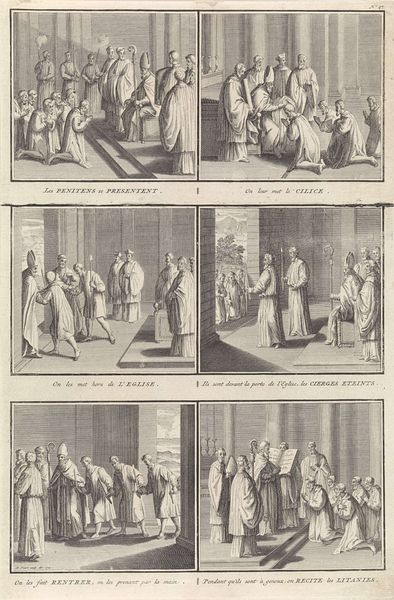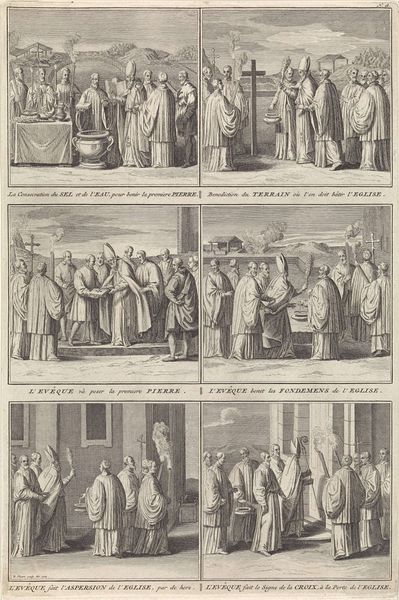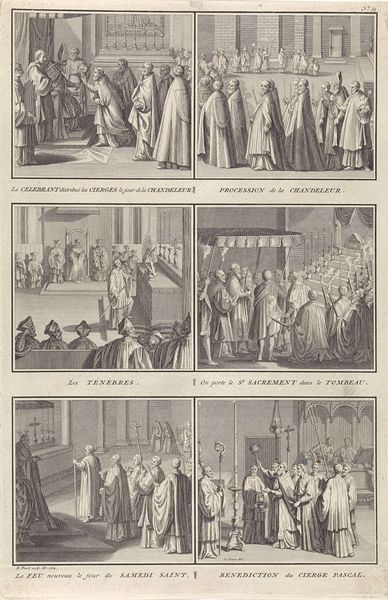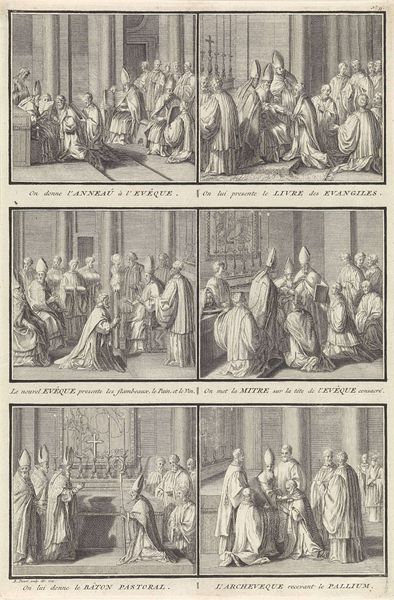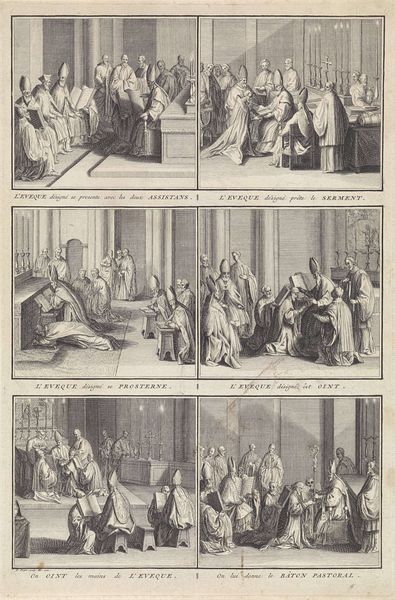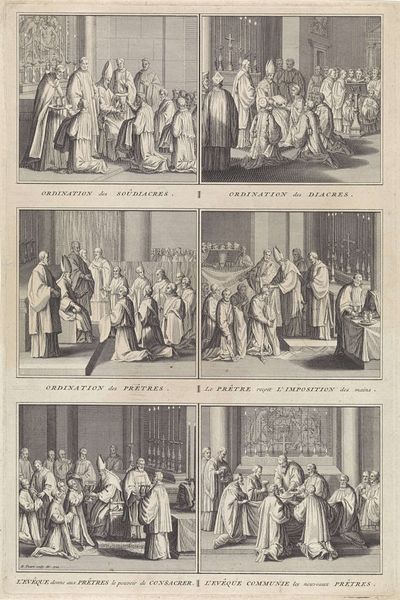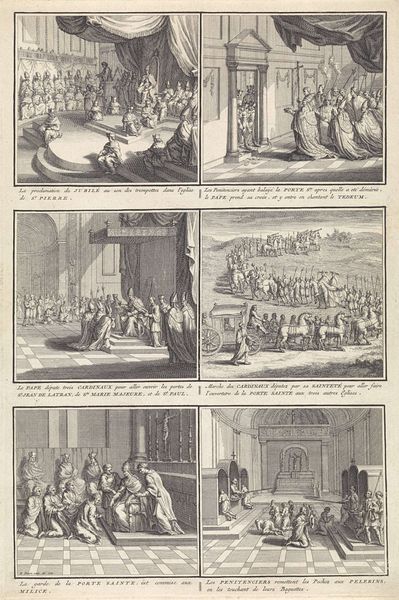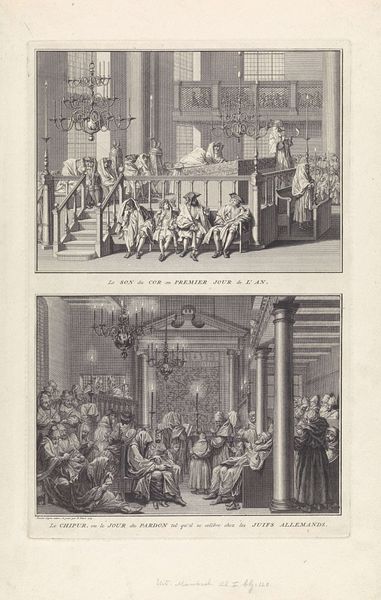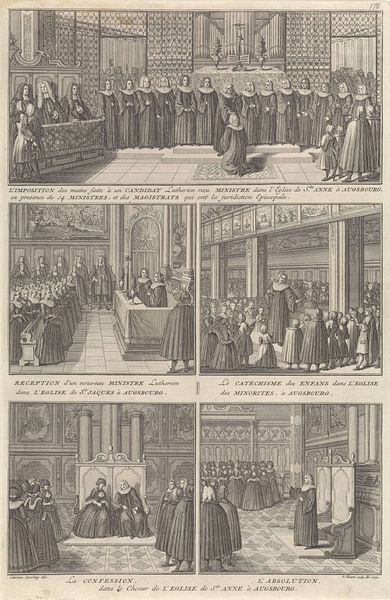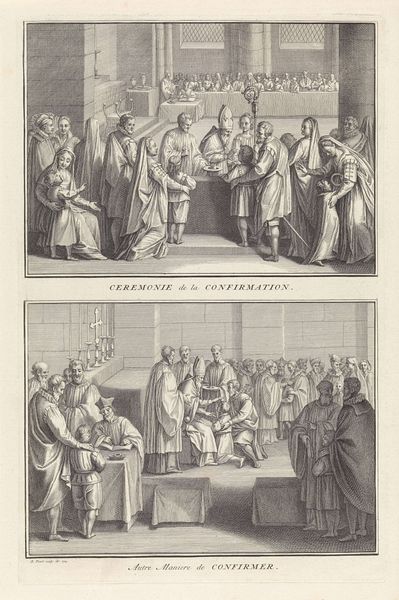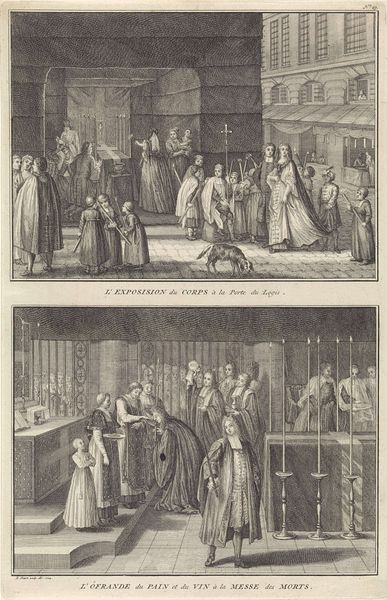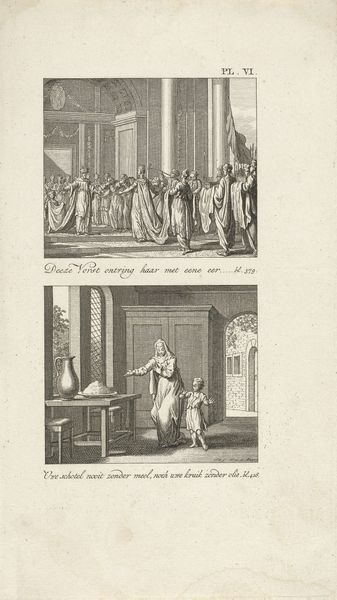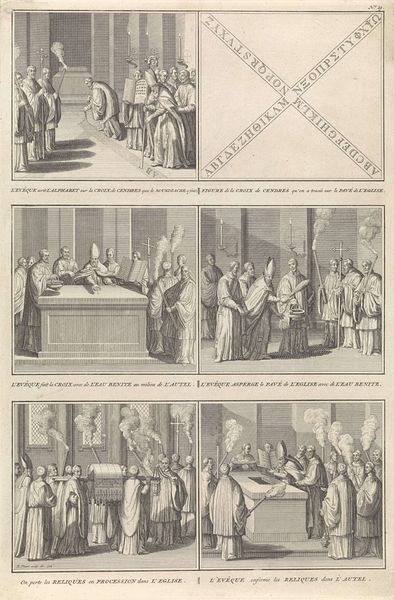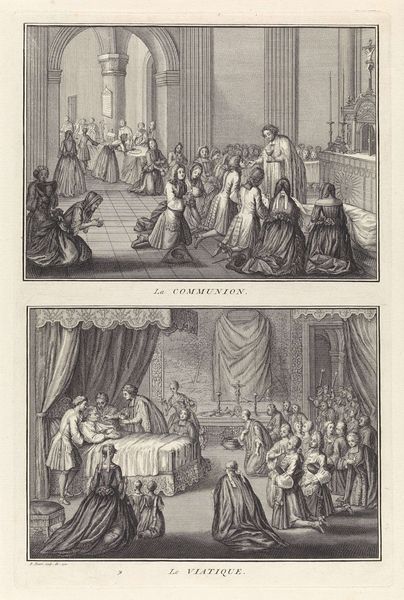
print, etching, engraving
#
baroque
# print
#
etching
#
old engraving style
#
group-portraits
#
history-painting
#
engraving
Dimensions: height 330 mm, width 218 mm
Copyright: Rijks Museum: Open Domain
Editor: This is "Wijding van een abt, abdis en kloosterzusters" from 1722, made by Bernard Picart. It's a print – an etching and engraving. There are multiple scenes depicting religious rituals. The composition seems very structured, almost like a comic strip telling a story. How do you interpret this work? Curator: Let’s consider this print in terms of its materiality and production. The act of engraving and etching, the labour involved in creating these repeatable images, speaks to the democratization of religious imagery in the 18th century. These weren’t unique paintings for the elite; they were commodities circulating within a specific social context, yes? Editor: Definitely. The multiple scenes shown also give you a more complete look at religious rituals of the time. Does the print medium itself impact how these events are understood? Curator: Absolutely! The use of printmaking allowed for wider dissemination and consumption of religious iconography. Consider how the standardized format— the uniform lines, the precise details—served to solidify a particular visual narrative of religious authority and practice. Think about how this impacts and maybe reinforces social hierarchies. Are these depictions accurate, or are they idealized for a consuming public? Editor: I see. So, it's not just about the religious events, but about how the printing process itself shapes their meaning and distribution. Thanks, I'll never look at an etching the same way again! Curator: Indeed. By examining the materiality and means of production, we gain insight into the complex social and cultural forces at play in the creation and reception of art.
Comments
No comments
Be the first to comment and join the conversation on the ultimate creative platform.
